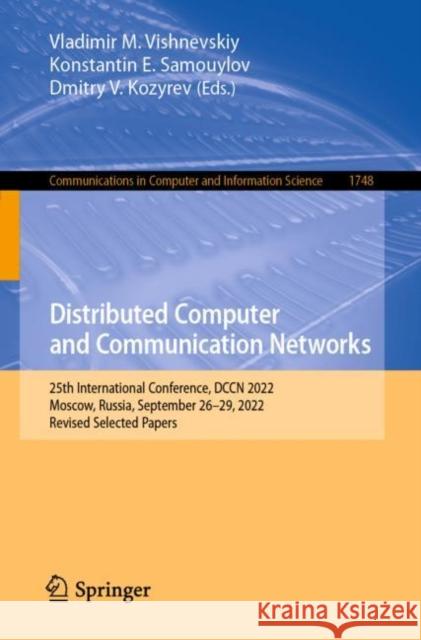Distributed Computer and Communication Networks: 25th International Conference, Dccn 2022, Moscow, Russia, September 26-29, 2022, Revised Selected Pap » książka
topmenu
Distributed Computer and Communication Networks: 25th International Conference, Dccn 2022, Moscow, Russia, September 26-29, 2022, Revised Selected Pap
ISBN-13: 9783031306471 / Angielski
Distributed Computer and Communication Networks: 25th International Conference, Dccn 2022, Moscow, Russia, September 26-29, 2022, Revised Selected Pap
ISBN-13: 9783031306471 / Angielski
cena 322,01
(netto: 306,68 VAT: 5%)
Najniższa cena z 30 dni: 308,41
(netto: 306,68 VAT: 5%)
Najniższa cena z 30 dni: 308,41
Termin realizacji zamówienia:
ok. 22 dni roboczych.
ok. 22 dni roboczych.
Darmowa dostawa!
Kategorie:
Kategorie BISAC:
Wydawca:
Springer
Seria wydawnicza:
Język:
Angielski
ISBN-13:
9783031306471











